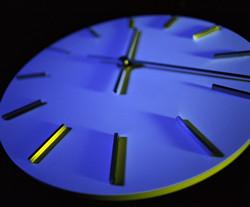CORDIS Express: Timing is everything!
Time is of the essence. Time heals all wounds. All in good time. The plethora of ‘time sayings’ that pervade our discourse shows just how much time weighs on our minds. So what would we do if time were to change? Researchers at the National Physical Laboratory (NPL) in the UK considered this question 60 years ago when they realised the day was actually getting longer. Back in 1955, it was becoming clear that astronomical time posed a problem: the length of a second was changing due to the irregular rotation of the Earth. In answer to this conundrum, Louis Essen and Jack Parry from NPL designed and built the world's first caesium atomic clock and thus transformed the way we measure and use time. Today, atomic clocks form the backbone of our modern communication and navigation technology. Our best atomic clocks lose only 1 second in 30 billion years, making them the most precise measurement devices ever built, but also extremely delicate and susceptible to external perturbations. Improving these clocks could open up exciting new applications in areas such as geodesy, fleet tracking, autonomous vehicles, augmented reality and shed light on some of the most fundamental questions in research. And that’s why EU-funded researchers are tinkering with time! The recently-launched NUCLOCK project is working to develop a novel type of clock, based on a unique nuclear transition in Thorium-229 which will be largely inert to perturbations, simpler by design, and holds the potential to outperform existing atomic clocks in terms of precision. Meanwhile, the SOC2 project team are working to deliver the most stable and accurate portable optical clocks for use in space – a technology which would put the EU at the forefront of the terrestrial market as well. This week’s edition of CORDIS Express takes a look at these and other EU-funded research projects and news articles that explore how we can improve our measurement of time. - A time and a place for optical clocks(opens in new window) - Towards a nuclear clock with Thorium-229(opens in new window) - Advance Optical Clocks(opens in new window) - Future Atomic Clock Technology(opens in new window) - Trending science: Our last ‘leap second’?(opens in new window)
Countries
Austria, Belgium, Bulgaria, Cyprus, Czechia, Germany, Denmark, Estonia, Greece, Spain, Finland, France, Croatia, Hungary, Ireland, Italy, Lithuania, Luxembourg, Latvia, Malta, Netherlands, Poland, Portugal, Romania, Sweden, Slovenia, Slovakia, United Kingdom



